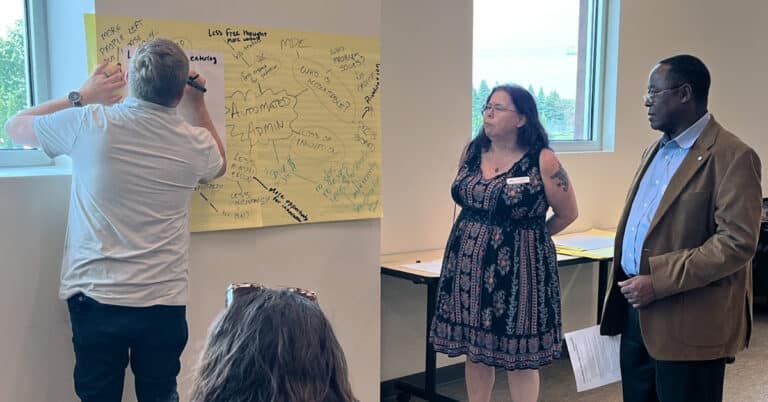In today’s complex and divisive political climate, I often wonder if people can come together to address confounding issues with real, systemic and sustainable policy change. In pondering this thought, I often devolve to a more cynical or depressed perspective about the status of our political discourse and the absence of true public service.
But recently, I served on the National Advisory Committee for a new book about the passage of the groundbreaking 1984 South Carolina Education Improvement Act, and I was reminded of what we can do when we come together.
A People’s Movement: How a team of state and local leaders mobilized the grassroots, transformed public education, and lived to tell the tale – and how you can, too shares relevant lessons from one of the nation’s most ambitious state-level legislative reform initiatives and takes a fresh look at the 1984 South Carolina Education Improvement Act (EIA). This was a bold education reform effort championed by a broad coalition built by former Secretary of Education and then-Governor Dick Riley. The bill was designed to address the state’s lagging academic achievement and economic competitiveness.
The book, authored by Robert Saffold, offers lessons and strategies relevant to today’s policymaking, including:
- 25 key policy “plays” that generated widespread, bipartisan support and set an ambitious, comprehensive agenda for large-scale reform and are applicable to today’s political landscape
- Perspectives of 27 key leaders involved in the passage and implementation of the EIA, captured through extensive oral history interviews
- A narrative that captures the realities of enacting large-scale reform and achieving the art of compromise
- How the legislation propelled South Carolina to make greater gains in public education than any other state in the nation in the years after enactment
The EIA provided the foundation for greater investment in education for the state of South Carolina and greater investment in proven strategies to boost academic achievement and in doing so lift all students in the state. In 1984, I was living in Ponca City, Oklahoma, and in the 4th grade. Even though I did not have a direct link to the EIA, my connection was in the message of hope the book projects as well as the practicality of the lessons learned and how they are still applicable nearly four decades later.
There are four key lessons cut across the policy plays and themes of A People’s Movement:
- Coordinated mobilization of grassroots citizens and grasstops leaders
- Deft political negotiations
- Stakeholder compromise
- Strong executive leadership
The lessons outlined above have proven true in our work as well. They are present in the passage of SB2186 during the 2017 legislative session in North Dakota, which created greater flexibility to support innovation in education. SB2186 was foundational to advancing personalized, competency-based learning in North Dakota and creating the state-wide structures needed to support the work.
It is no secret to those that know me that former Secretary and Governor Dick Riley is a role model for me. It was an honor to play a small role in the creation of the book. Riley served for about a decade on the KnowledgeWorks Board of Directors, and during that time I got to know him and see how he thought about education policy as a tool to create increased opportunities for all students. He did so through the passage of the EIA as well as through his work at the United States Department of Education. The EIA and the strategies in A People’s Movement are merely the tip of the iceberg for his legacy.







